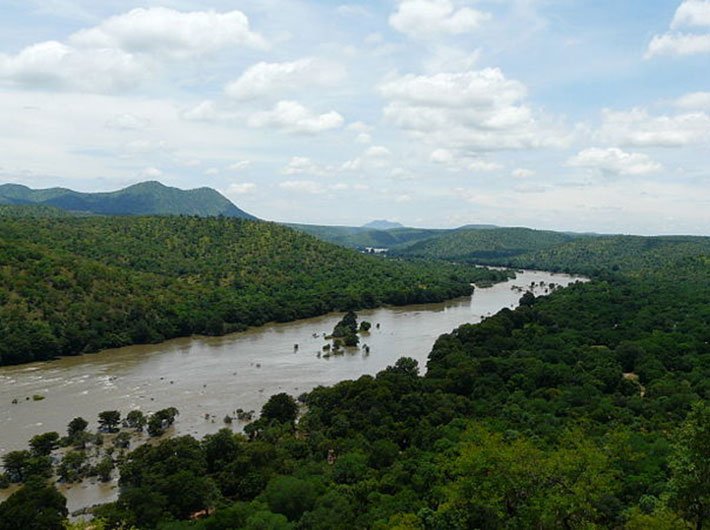Karnataka contends that it doesn’t receive its fair share of water, while Tamil Nadu argues that the state is heavily dependent on the river water and change in pattern would hit its farmers
Life in Bengaluru came to a halt this week following the Cauvery water protest that led to the worst violence in ten years. States of Tamil Nadu and Karnataka have always been in conflict over sharing its water.
Background of the conflict:
Cauvery river originates from Talakaveri, Kodagu in Karnataka. Flowing through south and east Karnataka, the river enters Tamil Nadu and enters into the Bay of Bengal through two principal mouths in Poompuhar, Tamil Nadu. The 802 km long river has 44,000 km square basin area in Tamil Nadu and 32,000 km square area in Karnataka. Kerala and Puducherry account for 2,866 km square and 160 km square area, respectively.
The major conflict over sharing river water is between Tamil Nadu and Karnataka and it goes back to British era. Two agreements, in 1892 and 1924, were signed between Madras Presidency and Princely State of Mysore. The agreements were to be reviewed after 50 years. After independence, as the land under irrigation increased in both the states and also the population, the states expressed their objection to the old and obsolete agreement and asked for a review of the same to meet the water needs of their people.
Post-independence situation:
In 1970, a fact finding committee was set up to figure out the problem and the situation in all four states sharing the river basin. In 1972, the committee submitted its report followed by an agreement between the states in 1976. However, the then government in Tamil Nadu refused to give its consent to the agreement. This fueled further dispute. While Karnataka kept contending that it doesn’t receive its fair share of water and that the British era agreement were biased and were in favour of Tamil Nadu (Madras Presidency during that time), Tamil Nadu argued that the state is heavily dependent on the river water and change in pattern would hit its farmers.
Tribunal’s role and the failed verdict:
In 1986, the Tamil Nadu government appealed to the central government to set up a tribunal to solve the dispute. In 1990, the Cauvery water tribunal came up under the Inter-State Water Dispute Act. After years of hearing, in 2007, the tribunal allocated 419 tmc ft water to Tamil Nadu and 270 tmc ft water to Karnataka; 30 tmc ft water was allocated to Kerala and 7 tmc ft water to Puducherry. Unhappy with the verdict, the states filed a review of the order. Meanwhile, the dispute over sharing river water continued to influence the political scenario in both the states.
2012 and thereafter
In 2012, prime minister Manmohan Singh, who was the head of Cauvery Water Authority, asked the Karnataka government to release 9,000 cusecs of water to Tamil Nadu daily. However, the state government thought that it was impractical in view of the drought and bad monsoon. The supreme court intervened and slammed the state government for not complying with the order. Following this, Karnataka started releasing Cauvery water to Tamil Nadu. This led to massive protest in the state.
However, the Karnataka government failed to release water thereafter, following which Tamil Nadu chief minister J Jayalalithaa decided to file a contempt of court against the Karnataka government. In 2016, Jayalalithaa filed a petition in the SC in August 2016, seeking release of water as per guidelines of Cauvery Tribunal. On September 5, in its verdict, the apex court directed the Karnataka government to release 15,000 cusecs of water to TN for 10 days.
On September 12, the order was modified and the state government was asked to release 12,000 cusecs of water till September 20. This led to massive protest in the state. A day’s bandh was observed across state followed by anti-Tamil Violence in Karnataka. The violence has claimed two lives so far. Around 1,700 paramilitary personnel have been sent to assist police in violence-hit.
Prime minister Narendra Modi issued an appeal for maintaining peace, saying that he was “personally pained” by the situation.


